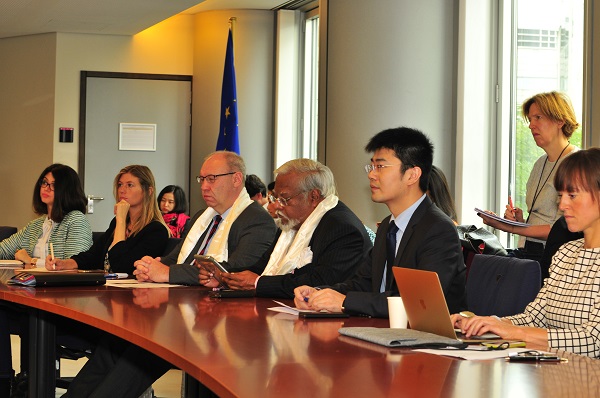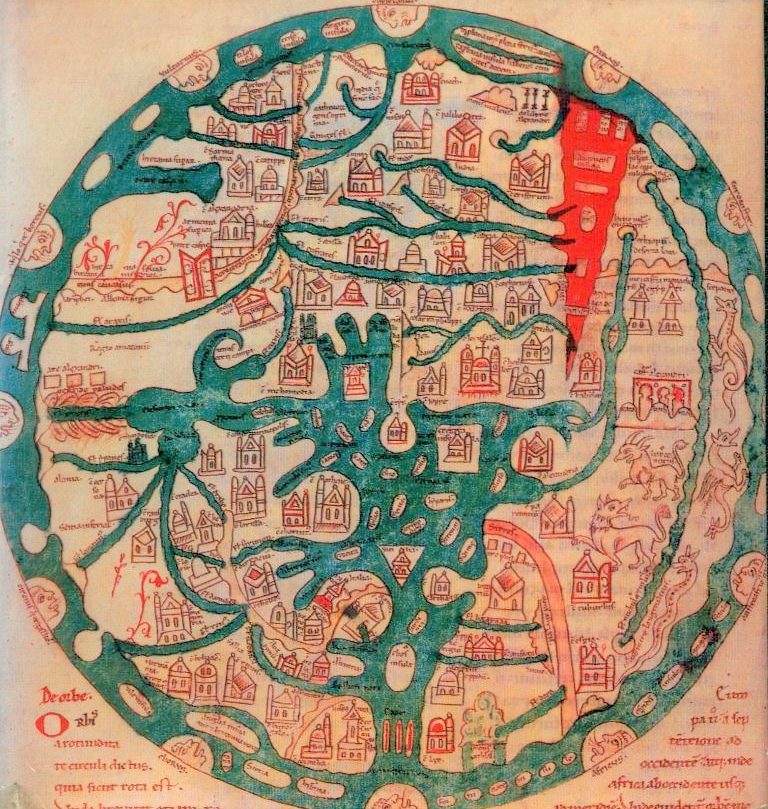In Territorial Shock I asserted that the power of the state in the 21st century is considerably diminished notwithstanding the fact that its ‘infrastructural power’ (administration, transport, military, etc.) has impressively progressed from the 19th century unto the current time. The institutional reason for state weakness mentioned in that book was threefold: private agents have become financially much more powerful in comparison with the state, non-state agents easily move their base of operations across state boundaries and (non-)state agents have increasingly powerful means at their disposal to avoid juridical institutions and legal practices. The use of cyber-attacks or the funnelling of money to safe havens may illustrate the latter.
A reason for state-failure, not mentioned in my book, is democracy itself. The argument seems counter-intuitive: is not democracy the safeguard of stability, the way to ensure that politics is an expression of people’s desires particularly in the age of communication? In a way the somewhat exalted emphasis on freedom that the spirit of democracy evokes, may itself create tensions where it gets socially counterproductive. The conflicts created in democratic systems by the struggle against the Covid-19 virus speak volumes: your freedom may be my illness. The outcome of the presidential elections in the US, sometimes close to a civil war, induced China (itself charged with genocide) to suggest that the US is a failing state.

But what exactly makes a state strong? Having rich material and human resources (technology) at its disposal is an obvious answer. However, the discussion on state failure usually focuses on governance, the way to exploit such resources to the benefit of a nation in terms of safety and wealth. Sure enough, this was never a task that merely rested on domestic order alone. The threat of territorial expansion, either by shifting boundaries or expanding the state’s influence, was an integral part of it, at least for those states who could afford such endeavours (or thought so). The current world system tends to discourage such military exploits but offers ample scope for soft power. A strong state in the current era will be able to ideologically unify its own population and use them to exercise soft power abroad, thanks to the porous borders of the global age.
China practices a national and foreign policy in which members of groups or parties that officially represent specific interests (ethnic, religion, economic sphere) are co-opted by the national leadership (Chinese Communist Party) in such a way that the CCP can speak on behalf of these groups and use them to claim legitimacy (Alex Joske, 2020). This is enabled by the united front system which derives from traditional Leninist policies. Note that the basic strategy is to retain such groups and not to eliminate them as enemies of the state. They are just transcribed to the national enterprise or exemplify in other words the strategy of repurposing democracy (Jichang Lulu, 2019).
While this system may suppress the open expression of conflicts at home it is also directed to gain influence in and information from abroad. Adopting an informal strategy it targets groups like business clubs, scientific associations, NGO’s and (of course) ‘Friendship with China’ groups and many others. The Chinese People’s Association for Friendship with Foreign Countries (CPAFFC) is a tool for the CCP to exercise foreign influence in by-passing official diplomacy. Jichang Lulu (an independent researcher) has researched the contacts between the informal ‘European Parliament China Friendship Group’ and Chinese representatives. He describes the European institutional culture as completely inadequate with regard to the study of the Chinese reality: Rigorous research on controversial topics, is (..) unlikely to flourish in an environment that incentivises all-day conferences, self-promotion, collegial flatter. The result is a knowledge asymmetry (aided by the language barrier) between European and Chinese decision makers that makes Europe the ideal target for Chinese influencing.
One may hesitate to describe the ‘environment that incentivises all-day conferences’ as the hallmark of democracy but democracy is certainly founded on discursive principles. It will not suffice to make a state strong in the current world.
Alex Joske, The Party Speaks for You. Foreign interference and the Chinese Communist Party’s unified front system. Australian Strategic Policy Institute 2020. https://www.aspi.org.au/report/party-speaks-you
Jichang Lulu, Repurposing Democracy. The European Parliament China Friendship Cluster. Sinopsis (Aca Media) 2019.
